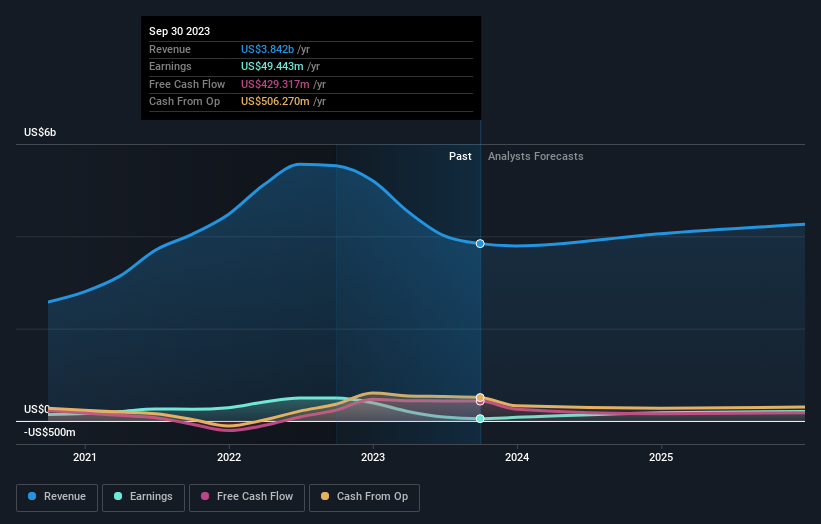The main point of investing for the long term is to make money. Better yet, you’d like to see the share price move up more than the market average. But LCI Industries (NYSE:LCII) has fallen short of that second goal, with a share price rise of 76% over five years, which is below the market return. But if you include dividends then the return is market-beating. Some buyers are laughing, though, with an increase of 36% in the last year.
So let’s investigate and see if the longer term performance of the company has been in line with the underlying business’ progress.
Check out our latest analysis for LCI Industries
While the efficient markets hypothesis continues to be taught by some, it has been proven that markets are over-reactive dynamic systems, and investors are not always rational. One imperfect but simple way to consider how the market perception of a company has shifted is to compare the change in the earnings per share (EPS) with the share price movement.
LCI Industries’ earnings per share are down 20% per year, despite strong share price performance over five years.
Essentially, it doesn’t seem likely that investors are focused on EPS. Since the change in EPS doesn’t seem to correlate with the change in share price, it’s worth taking a look at other metrics.
In contrast revenue growth of 18% per year is probably viewed as evidence that LCI Industries is growing, a real positive. In that case, the company may be sacrificing current earnings per share to drive growth.
The graphic below depicts how earnings and revenue have changed over time (unveil the exact values by clicking on the image).
Balance sheet strength is crucial. It might be well worthwhile taking a look at our free report on how its financial position has changed over time.
What About Dividends?
When looking at investment returns, it is important to consider the difference between total shareholder return (TSR) and share price return. Whereas the share price return only reflects the change in the share price, the TSR includes the value of dividends (assuming they were reinvested) and the benefit of any discounted capital raising or spin-off. It’s fair to say that the TSR gives a more complete picture for stocks that pay a dividend. We note that for LCI Industries the TSR over the last 5 years was 104%, which is better than the share price return mentioned above. This is largely a result of its dividend payments!
A Different Perspective
We’re pleased to report that LCI Industries shareholders have received a total shareholder return of 41% over one year. That’s including the dividend. That’s better than the annualised return of 15% over half a decade, implying that the company is doing better recently. Someone with an optimistic perspective could view the recent improvement in TSR as indicating that the business itself is getting better with time. While it is well worth considering the different impacts that market conditions can have on the share price, there are other factors that are even more important. For example, we’ve discovered 4 warning signs for LCI Industries (1 shouldn’t be ignored!) that you should be aware of before investing here.
We will like LCI Industries better if we see some big insider buys. While we wait, check out this free list of growing companies with considerable, recent, insider buying.
Please note, the market returns quoted in this article reflect the market weighted average returns of stocks that currently trade on American exchanges.
Have feedback on this article? Concerned about the content? Get in touch with us directly. Alternatively, email editorial-team (at) simplywallst.com.
This article by Simply Wall St is general in nature. We provide commentary based on historical data and analyst forecasts only using an unbiased methodology and our articles are not intended to be financial advice. It does not constitute a recommendation to buy or sell any stock, and does not take account of your objectives, or your financial situation. We aim to bring you long-term focused analysis driven by fundamental data. Note that our analysis may not factor in the latest price-sensitive company announcements or qualitative material. Simply Wall St has no position in any stocks mentioned.






